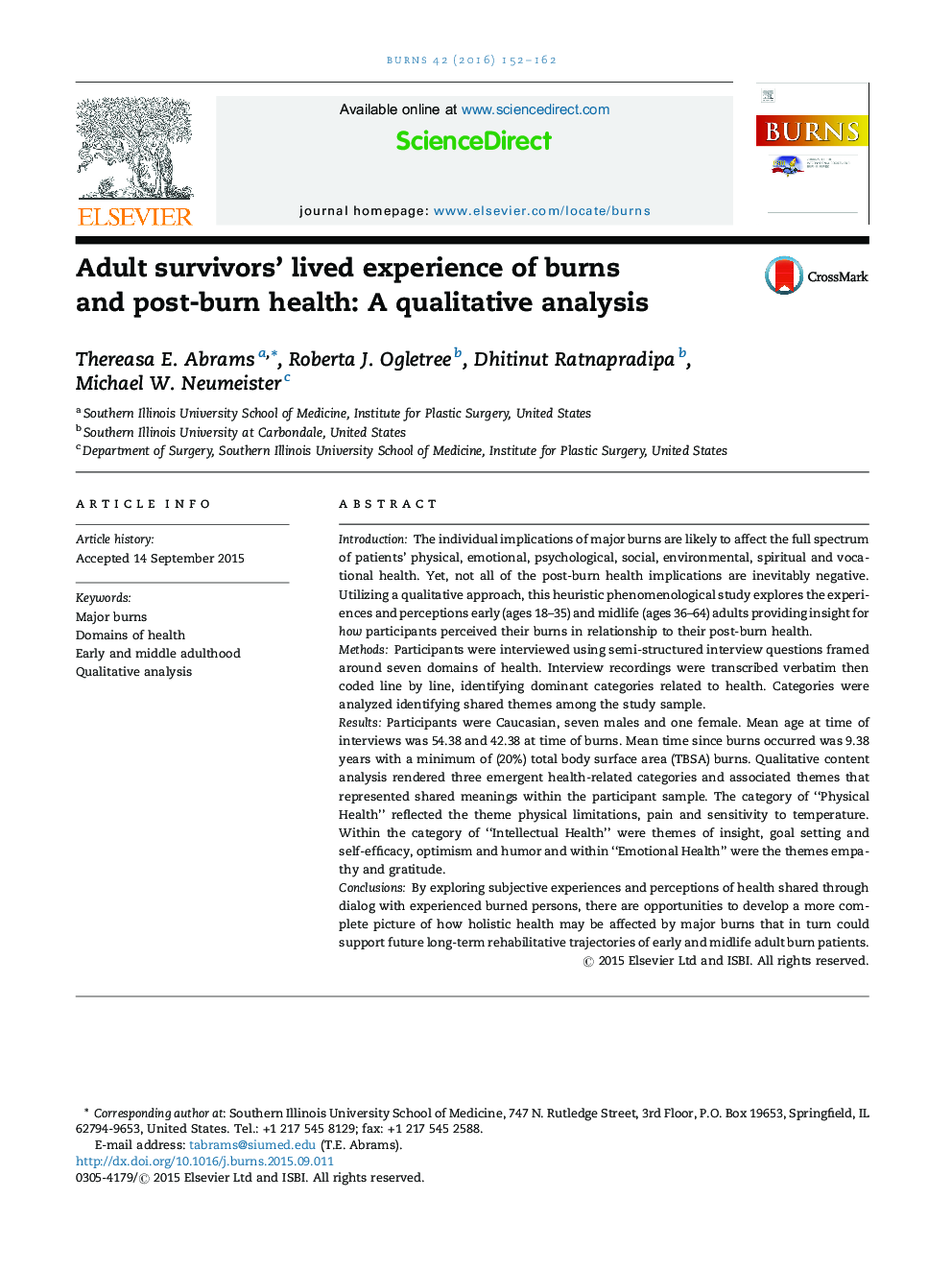| Article ID | Journal | Published Year | Pages | File Type |
|---|---|---|---|---|
| 3104183 | Burns | 2016 | 11 Pages |
•Qualitative, heuristic investigation with eight early and middle burned adults.•Mean age at time of interviews was 54.38 and 42.38 at time of burns.•Mean time since burns occurred was 9.38 years with >20% TBSA burns.•Categories were: Physical Health, Intellectual Health and Emotional Health domains.•Subjective data reveals thematic variables supporting long-term health after burn.
IntroductionThe individual implications of major burns are likely to affect the full spectrum of patients’ physical, emotional, psychological, social, environmental, spiritual and vocational health. Yet, not all of the post-burn health implications are inevitably negative. Utilizing a qualitative approach, this heuristic phenomenological study explores the experiences and perceptions early (ages 18–35) and midlife (ages 36–64) adults providing insight for how participants perceived their burns in relationship to their post-burn health.MethodsParticipants were interviewed using semi-structured interview questions framed around seven domains of health. Interview recordings were transcribed verbatim then coded line by line, identifying dominant categories related to health. Categories were analyzed identifying shared themes among the study sample.ResultsParticipants were Caucasian, seven males and one female. Mean age at time of interviews was 54.38 and 42.38 at time of burns. Mean time since burns occurred was 9.38 years with a minimum of (20%) total body surface area (TBSA) burns. Qualitative content analysis rendered three emergent health-related categories and associated themes that represented shared meanings within the participant sample. The category of “Physical Health” reflected the theme physical limitations, pain and sensitivity to temperature. Within the category of “Intellectual Health” were themes of insight, goal setting and self-efficacy, optimism and humor and within “Emotional Health” were the themes empathy and gratitude.ConclusionsBy exploring subjective experiences and perceptions of health shared through dialog with experienced burned persons, there are opportunities to develop a more complete picture of how holistic health may be affected by major burns that in turn could support future long-term rehabilitative trajectories of early and midlife adult burn patients.
